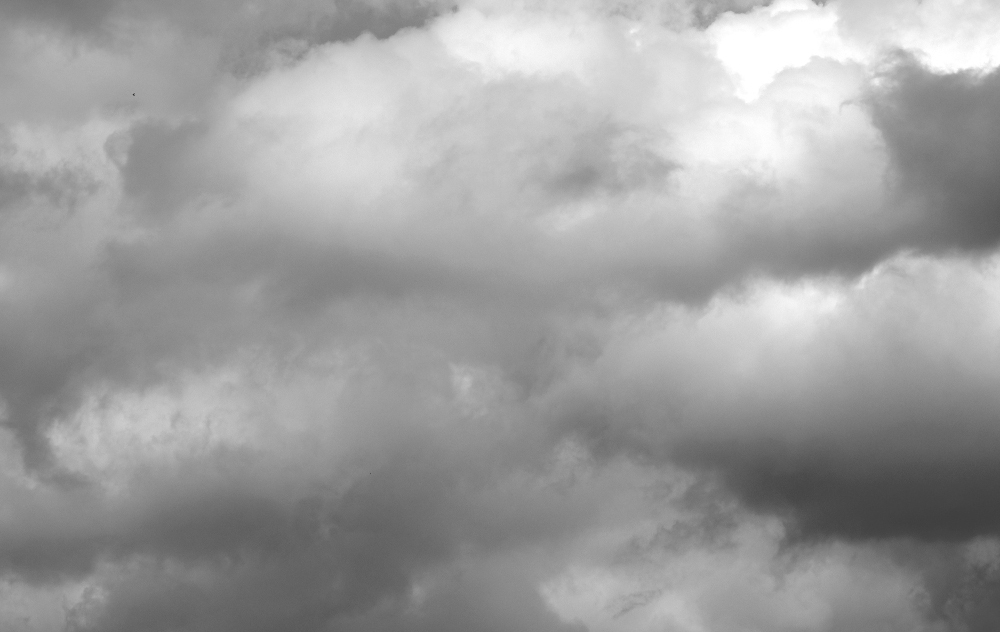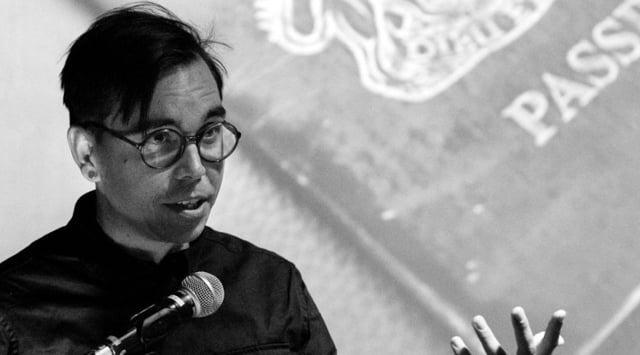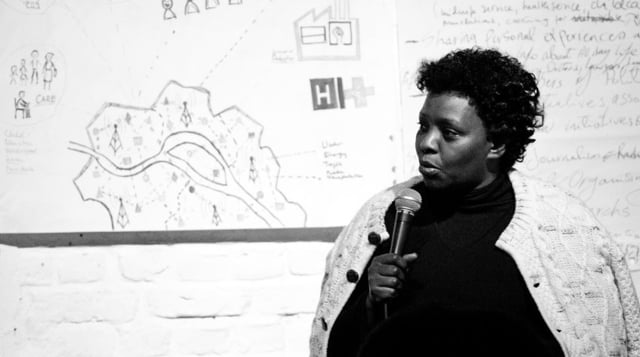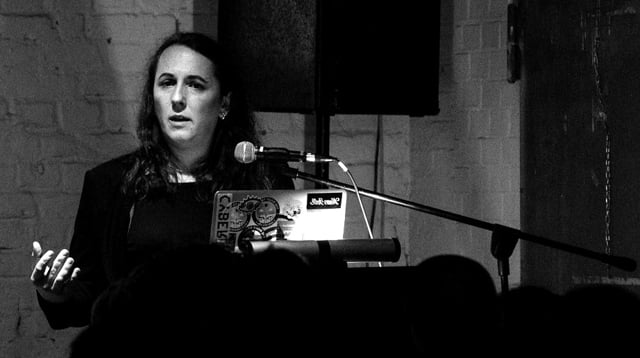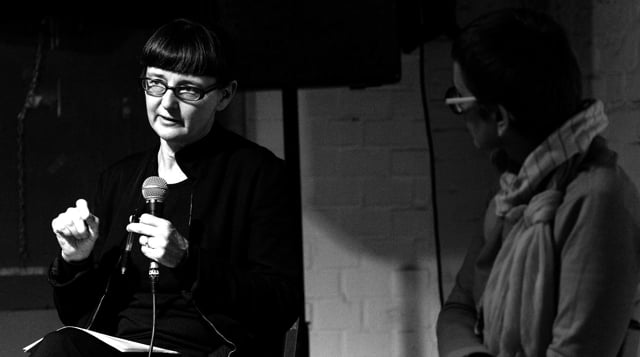BG Annual Conference 2017 | November 2-4 | ZK/U – Center for Arts and Urbanistics | Siemensstrasse 27 | 10551 Berlin

Failed Citizens or Failed States?
What does it mean for any person to become a citizen, today? What does it mean for citizens and non-citizens alike to become political actors in fields of dissent? Such questions come urgently to the fore when – as in the present – conflicts are flaring up with exceptional heat. Exploiting this trend, right-wing populisms are promoting escapism and warmongering – thereby bringing about failed citizens and failed states. In contrast, the FRIENDLY FIRE conference sought to explore how we could embrace conflicts in order to make societies more democratic. To begin with, the project investigated one major site of today’s conflicts: the politics of citizenship. Together with the ZK/U the Berliner Gazette (BG) hosted researchers, activists, coders and journalists from more than 25 countries. They embarked upon fruitful debates and productive cooperation. The results are presented below.
I. Documents
Welcome
At the FRIENDLY FIRE conference the Berliner Gazette hosted 450 people who explored the politics of citizenship over the course of three days. Here we present our findings in the form of projects, audios, videos and photos. At the bottom of this page you will find the conference program and additional info on the project.
Videos, Projects, Audios, Texts
We present the conference documents in four sections: The video section contains impressions from the three days and video interviews with conference guests. The projects section presents results that emerged at the five workshops: crossmedia stories, position papers and fictitious products. The audios section brings together recordings of the keynotes and discussions. And the texts sections introduces selected interviews and essays and a book that we produced in the context of this project.
Photos
The photos featured in the documentation section of this page were taken during the FRIENDLY FIRE conference. More of them are available, capturing many of the event processes, including the performances, a collaborative cooking event and some of the lunch walks! We have bundled them in a flickr album. Click on the following link to see all of them: http://flic.kr/s/aHskTUjuh5
II. Videos
Conference round up
James Bridle (artist + writer)
Jennifer Kamau (activist + researcher)
Valentina Pellizzer (activist)
Eleanor Saitta (coder + theorist)
Ingo Günther (artist)
Felicity Scott (historian)
III. Projects
(Un)Belonging

What does it mean to be stateless today when our whole world is permeated by the idea of the nation state? There are different scenarios of statelessness: some individuals are stateless by force, some have denounced their citizenship voluntarily. In some cases, people feel stateless because they do not identify with the state they belong to, or perhaps the state they would like to belong to does not exist. In this multimedia essay a group of journalists, coders and activists explored different issues surrounding statelessness. What is it? And does anyone benefit from it? Check out their project by clicking here.
Bioradical

Today, biometric technologies are publicized as infallible and unchallengeable verifiers of the truth about a person – the ultimate guarantors of citizenship. A group of coders, artists, journalists, cultural workers and activists took this propaganda at face value and created a fictitious start-up called Bioradical. Here, all visions of the biometric revolution are twisted and turned upside down into a radically dystopian model for citizenship. Their ultimate slogan: “Forget the border. Enter the bio-order.” Check out their playful project by clicking here.
Mutant City

The citizen as someone who politically and economically participates in an urban community – this idea is echoed in the French word “citoyen” (citizen), which derives from “cité” (city). But what could a city look like in which such an idea of citizenship can be realized? How would it be constructed? A group of researchers, cultural workers and activists explored visions for a city that would enable a participatory, grassroots, democratic and egalitarian citizenship. Revisit the citoyen-cité nexus of ideas and embark upon dreams of the utopian city by clicking here.
Rethinking citizenship

The opportunities for economic and political participation in Western societies are not equally distributed: What does it mean to look at this problem from the point of view of people who are systematically disadvantaged because they do not have the “proper papers” (such as, for instance, asylum seekers)? How can one gain a new perspective on this problem by rethinking the notion of political actors and redefining citizenship as such? A group of activists and artists tackled these questions and came up with a number of ideas, thoughts and questions. Check out their results by clicking here.
X-Ship

Our offline and online lives have become inseparable, so that nowadays citizenship is inseparable from digital citizenship. Corporations and governments are collecting data on us, our activities, our preferences, etc. – all this data enables citizen classifications, such whether one is a “good citizen” and a “credit worthy citizen” or not. And, ultimately, whether one is a “citizen or non-citizen”. Against this backdrop, a group of artists, journalists, cultural workers, coders and activists created a utopian model for digital citizenship called X-Ship. Check out their playful project by clicking here.
IV. Audios
Unboxing Data-Driven States

“There is only life and power, not digital and non-digital life and power,” as the hacker and political theorist Eleanor Saitta pointed out in her discussion with artist and writer James Bridle. To listen to their talk – moderated by Anna Sauerbrey – click the play button below.
Commodifying Non-/Citizenship

“The commodification of citizenship is a great danger to political life,” stated the journalist Atossa Abrahamian and the artist Ingo Günther discussed this tendency with activist Jennifer Kamau. To listen to the talk – moderated by Harsha Walia – click the play button.
Strategic Reversals of Power

“Critiques of police can be hijacked by powerful players,” as the architectural historian Felicity Scott noted when discussing alternative models of citizenship. To listen to her talk – moderated by Valentina Pellizzer – click the play button below.
V. Texts
Interviews + Essays

Please read the following interviews and essays by the key note speakers of the conference: Atossa Abrahamian about the commodification of citizenship; James Bridle about algorithmic citizenship; Deborah Cowen about the nexus of warfare, logistics and citizenship; Ingo Günther about the possibility of world citizenship; Eleanor Saitta about algorithmic states of exception and possibilities for insurgent citizenship; Felicity Scott about hippies, hackers and illegalized migrants as role models for citizenship.
These contributions were published as a collaboration between Berliner Gazette and its media partners openDemocracy and ExBerliner.
Book

What does it mean to be political today? What does it mean to belong? At the heart of these issues lies the politics of citizenship. By interlacing photography and writing, Krystian Woznicki explores how we can expand our horizon beyond memes such as the “refugee crisis” or the “surveillance state”. As an experiment on re-defining citizenship his book FUGITIVE BELONGING discloses what we all have in common: something that emerges when the dichotomy of the excluded and the included is contested and when the conflicts that result from that dichotomy are rendered productive. More info at Diamondpaper.
This book is published in conjunction with the FRIENDLY FIRE partner project SIGNALS.
Beiträge auf Deutsch

Lesen Sie in deutscher Sprache folgende Beiträge von den Keynote-SpeakerInnen der Konferenz: “Zugehörigkeit als Investition: Die Warenwerdung der Staatsbürgerschaft – und unsere Alternativen” von Atossa Abrahamian; “Algorithmische Staatsbürgerschaft und digitale Staatenlosigkeit: Zum Projekt Citizen Ex” von James Bridle; “Politik der Logistik: Wie Lieferketten sowohl Staat als auch Staatsbürgerschaft auf den Kopf stellen” von Deborah Cowen; “Weltbürgerschaft vs. Nationalismus: Was könnte eine globale Vernetzung von Geflüchteten bewirken?” von Ingo Günther; “Algorithmische Ausnahmezustände: Wie könnte eine aufständische Staatsbürgerschaft aussehen?” von Eleanor Saitta; “Hippies, Hacker und „Illegale“: Wie die Krise des Staates die Grenzen des Politischen verschiebt” von Felicity Scott.
VI. Conference Program
Are digital non-/citizens the status quo?

Thursday | Nov. 2 | 7:30 p.m.: Are Digital Non-/Citizens the Status Quo? Two prolific speakers will look for answers: the artist James Bridle, whose visionary project “Citizen Ex” reflects digital citizenship and the political thinker Eleanor Saitta, whose work explores the potential of radical democracy and consistently challenges the blind spots of the digital avantgardes.
Moderated by Anna Sauerbrey, who is a Berlin-based journalist, this public talk will reflect the politics of citizenship with regard to the rampant digitalization of people’s lives – be they citizens or not.
Who Claims Global Citizenship?

Friday | Nov. 3 | 7:30 p.m.: Who Claims Global Citizenship? Two prolific speakers will discuss this question: the media art pioneer Ingo Günther, whose project “Refugee Republic” envisions a global network of refugee shelters and the activist and researcher Jennifer Kamau, who facilitates a migrant network called International Women Space.
As a warm-up to this public talk, there will be a statement by the journalist Atossa Araxia Abrahamian, whose book “The Cosmopolites” has triggered a debate about the commodification of citizenship. Moderated by Harsha Walia, a Vancouver-based activist, this public talk will reflect on global citizenship from the points of view of both the super-rich and the underprivileged.
How is citizenship changing in war times?

Saturday | Nov. 4 | 3 p.m.: How is citizenship changing in war times? The architectural historian Felicity Scott will look for answers. Her Silicon Valley research sheds new light on the emergence of the military-entertainment complex and the states of exception in networked societies. Moderated by Valentina Pellizzer, a Sarajevo-based cultural worker, this public talk will reflect the crises of citizenship in the context of war.
As a warm-up to this public talk, there will be a statement by the geographer Deborah Cowen, whose books “War, Citizenship, Territory” and “The Deadly Life of Logistics” explore the politics of violence in the global age. Moreover, the workshop groups (see below) will present their results: position papers, multimedia storytelling projects, etc.
After this talk, please join a cooking party with Pepe Dayaw starting at 6:30 p.m.
VII. Workshops
Register and join

The open call for the workshops targets (upcoming) hackers, journalists, activists and researchers. A limited number of participants was is able to register by contacting the following E-mail: info (at) berlinergazette.de. Deadline is October 20. Registration fee: 50 Euro, incl. catering. Please note: The five workshops will be running in parallel fashion, hence everybody is invited to commit to one single track. On November 2-4, the workshops will take place from 10 a.m. to 6 p.m. The conference hosts will provide catering throughout the entire conference, including warm lunch. A series of guided city walks is planned for lunch breaks!
Explore Citizenship

To tackle the key issues of the conference, five parallel workshop tracks will offer five different approaches for a constructive critique of citizenship as a framework for political participation: “Who needs Biometric Passports?”, “Are Asylum Seekers: Political Actors?”, “Who risks Mutant Citizenships?”, “Who benefits from Statelessness?”, “What is it to be an Algorithmic Non-/Citizen?”. The workshops will bring together over 100 activists from all over the world. The BG has invited key actors from the international scene to form the core of the five workshop tracks, more participants will register/join via an open call.
Collaborate

The workshop groups will encompass approximately 15 people, partly invited by the conference organizers, partly registered via the open call. Moderated by experienced facilitators, all workshop groups are invited to work on collaborative resources dedicated to the respective track theme. The results will be made available as online resources via berlinergazette.de. They can include position papers, multimedia storytelling projects and collections of ideas. Check the workshop results from the previous BG annual conference and find photos from the workshops here.
Who needs Biometric Passports?
In the democracy of ancient Attica, a citizen was defined according to the contrast between the public and the private, his or her home (the seat of reproductive life) as distinct from the city (the place of politics). Modern citizens, on the other hand, seem to be living in a zone of non-differentiation, in which our political body is becoming indistinguishable from our physical one: biometric technologies are propagated as infallible and unchallengeable verifiers of the truth about a person – the ultimate guarantors of identity. But what on earth might your relationship to your fingerprints or your genetic code consist of? Won’t this trend to categorize and quantify the body eventually decouple politics and citizenship? Who benefits from this? Who is left behind? The workshop initiates a quest for answers.
Guests: Nicolás Bello, Detlef Borchers, Phoebe Braithwaite, Alina Floroi, Kristoffer Gansing, Aude Launay, Morana Miljanovic, Fabian Peckelsen, Marta Peirano, Rebecca Puchta, André Rebentisch, Christina Rogers. Moderators: Ela Kagel & Christopher Senf.
Are Asylum Seekers Political Actors?
For a long time, the European definition of a political person was that rational people made public demands, and then, with the aid of consensus-building measures, used the tools of democracy to realize their demands. This also formed the basis of citizenship. Yet the tools of democracy (e.g., elections) have lost their appeal and power; the state itself, which is meant to make these tools practicable, has increasingly drifted out of reach. At the same time, a growing number of actors are effectively excluded from formal possibilities for political participation: asylum seekers, undocumented people, refugees, etc. Is it necessary to redefine what it means to be political and, more specifically, what it means to be a citizen? If so, how could we incorporate notions of citizenship as well as political agency from the Global South? The workshop initiates a quest for answers.
Guests: Amira Ahmad, Arwa Alladin, Sabrina Dittus, Taraneh Fazeli, Valeria Graziano, Bernd Hatesuer, Susie Kahlich, Annika Seibt, Jo van der Spek, Cassie Thornton, Harsha Walia. Moderators: Jennifer Kamau & Jaron Rowan.
Who risks Mutant Citizenships?
Citizenship as a product of nation-states has always been characterized by blind spots, such as for instance its logic of exclusion based solely on where people are born. Today, these blind spots are becoming apparent through the rise of local as well as transnational networks. Created by disenchanted citizens and asylum seekers alike, these networks are ‘accommodating’, e.g., thousands of undocumented people who are living in European cities nowadays. Moreover, they are providing the basis for so-called Sanctuary Cities – as in Toronto. Meanwhile, New York is offering ID-NYC, government-issued identification cards, to all New Yorkers, regardless of their immigration status. What institutional frameworks are already emerging that could actually support something that could be called global or urban citizenship? What institutional frameworks are lacking so far, but should be developed? The workshop initiates a quest for answers.
Guests: Laura Burtan, Harlo Holmes, Matthew Linares, Frauke Mahrt-Thomsen, Valentina Pellizzer, Brett Scott, Teo Vadnjal, Jaroslav Valuch, Elena Veljanovska. Moderators: Max Haiven & Nina Pohler.
Who benefits from Statelessness?
Throw your passport away and become a free person! Statelessness as a status that individuals have to a certain degree voluntarily taken upon themselves can be viewed as liberating and as a rebellion against the State and the idea of citizenship. Yet celebrations of self-imposed statelessness tend to ignore various problems that are fueling trends diametrically opposed to the building of democratic space, e.g., the politics of involuntary statelessness by people who are born stateless; the expansion of citizenship-stripping powers; and the production of a sub-proletariat that boosts the informal economy but has neither rights nor representation. How could the mechanisms and institutions that enable and enforce statelessness become more accountable? How could such transparency help criticize and redefine citizenship? The workshop initiates a quest for answers.
Guests: Susanne Braun, Géraldine Delacroix, Paul Hirsch, Inga Lindarenka, Monisha Caroline Martins, Sara Moreira, Miriam Quick, Catherine Sotirakou. Moderators: Claudia Núñez & Cristina Pombo.
What does it mean to be a digital non-/citizen?
Digital citizenship is usually defined as the (self-)enactment of people’s role in society through the use of digital technologies. It is therefore seen as empowering and democratizing. At the same time, processes of quantification and algorithmic categorization are transforming digital citizenship into a potential trap: we are effectively losing control of defining who we are online; moreover, we are losing ownership over the meaning of the categories that constitute our identities. Thus we have to confront various challenges as regards the expansion of networks as well as database rationalities: what differentiates the consumer and the non-/citizen in this scenario? What are the means by which we may render the processes of quantification and algorithmic categorization transparent and appropriate them for our own definition of digital citizenship? The workshop initiates a quest for answers.
Guests: Zeljko Blace, Martha Dörfler, Daphne Dragona, Gosia Jagiello, Martyna Kalvaityte, Katrin M. Kämpf, Cory Levinson, Riho Matsuda, Juliane Rettschlag, Andreas Schneider, Koji Takahashi, Çağrı Tașkın, Niloufar Vadiati. Moderators: Sabrina Apitz & Michael Prinzinger.
.
Our crowd, our mission
When we tackle politics, technology and the media we strive for diversity in terms of gender, tech literacy and professional background as well as expertise. We bring a wild mix of people together to stimulate collaborative creativity. Our crowd is a gathering of people from a range of skill-sets, political orientations, passions and talents. We wish to attract experts and beginners, hybrids and border-crossers, men and women.
Women: 50%
Non-Techs: 60%
Beginner: 40%
Hybrids: 76%
VIII. Information
